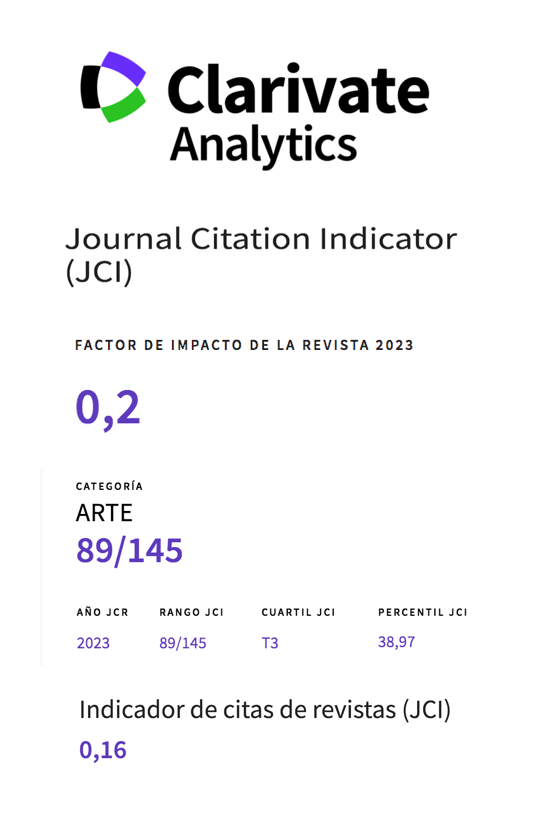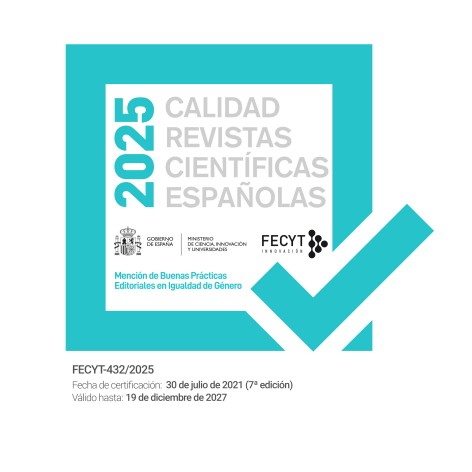About the Journal
Focus and Scope
Arte y Políticas de Identidad is a journal that addresses the different scientific subject areas related to Art and Identity Politics. It contains original articles of investigation and theoretical revision, as much in the basic and methodological scopes as applied to the art. It also includes a section dedicated to interviews, artistic interventions and exposition reviews. The journal has a biannual character (Since 2024, January and July) and the published articles are published in two versions: print edition (ISSN: 1889-979X [volumes from 1 to 20]), marketed and distributed by the Publications Service of the University of Murcia (Spain); and electronic edition (ISSN:1989-8452) on the web:
This journal arises within the research group Arte y Políticas de Identidad, linked to the Department of Fine Arts of the University of Murcia (Spain). Its purpose is to bring together researchers, artists and critics and offer them a space to publish their recent works in the field of interest of the magazine.
Peer Review Process
Plagiarism detection
Open Access Policy
This journal provides its content in immediate open access and in full text, under the principle that allowing free access to research results contributes to greater knowledge exchange on a global level.







